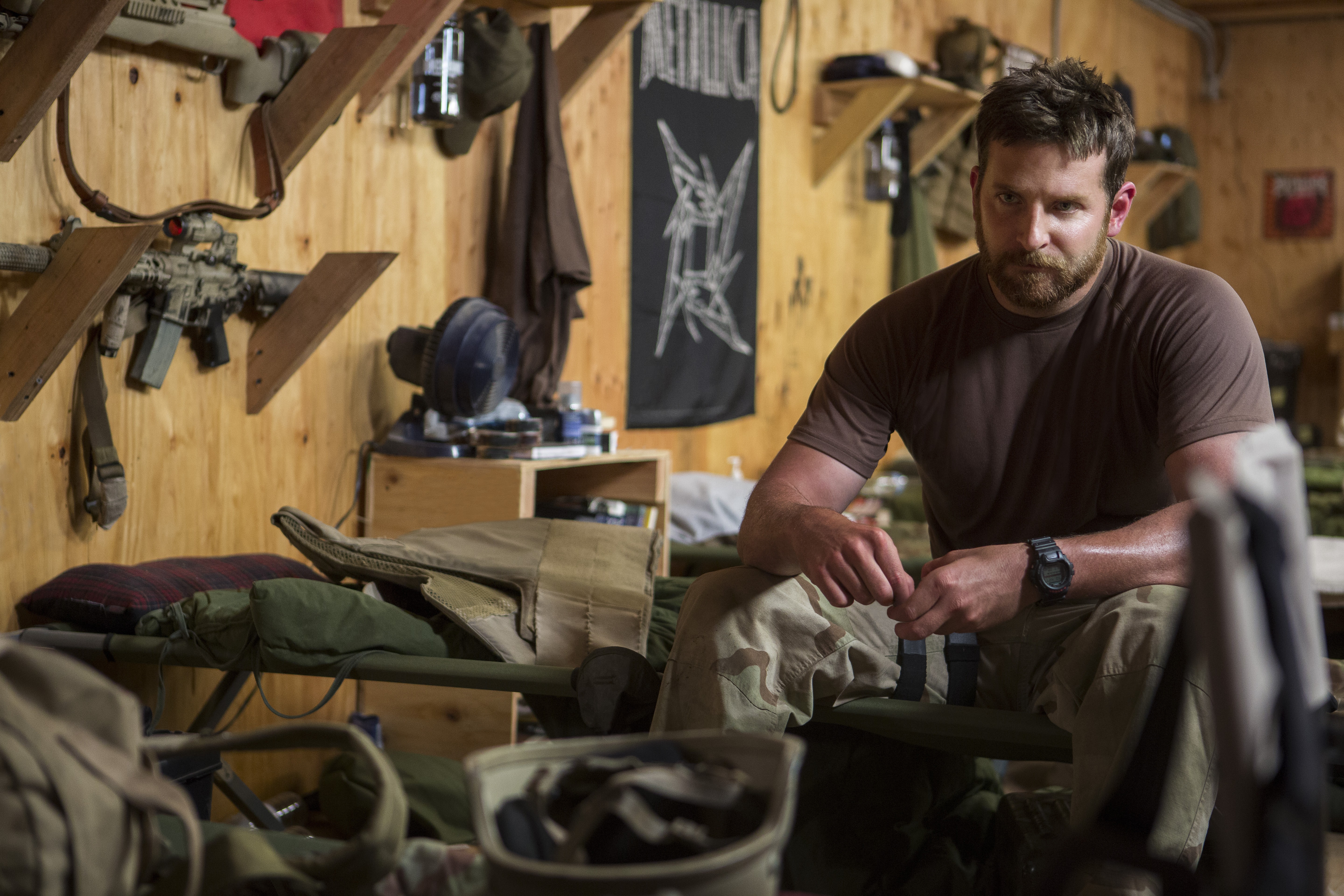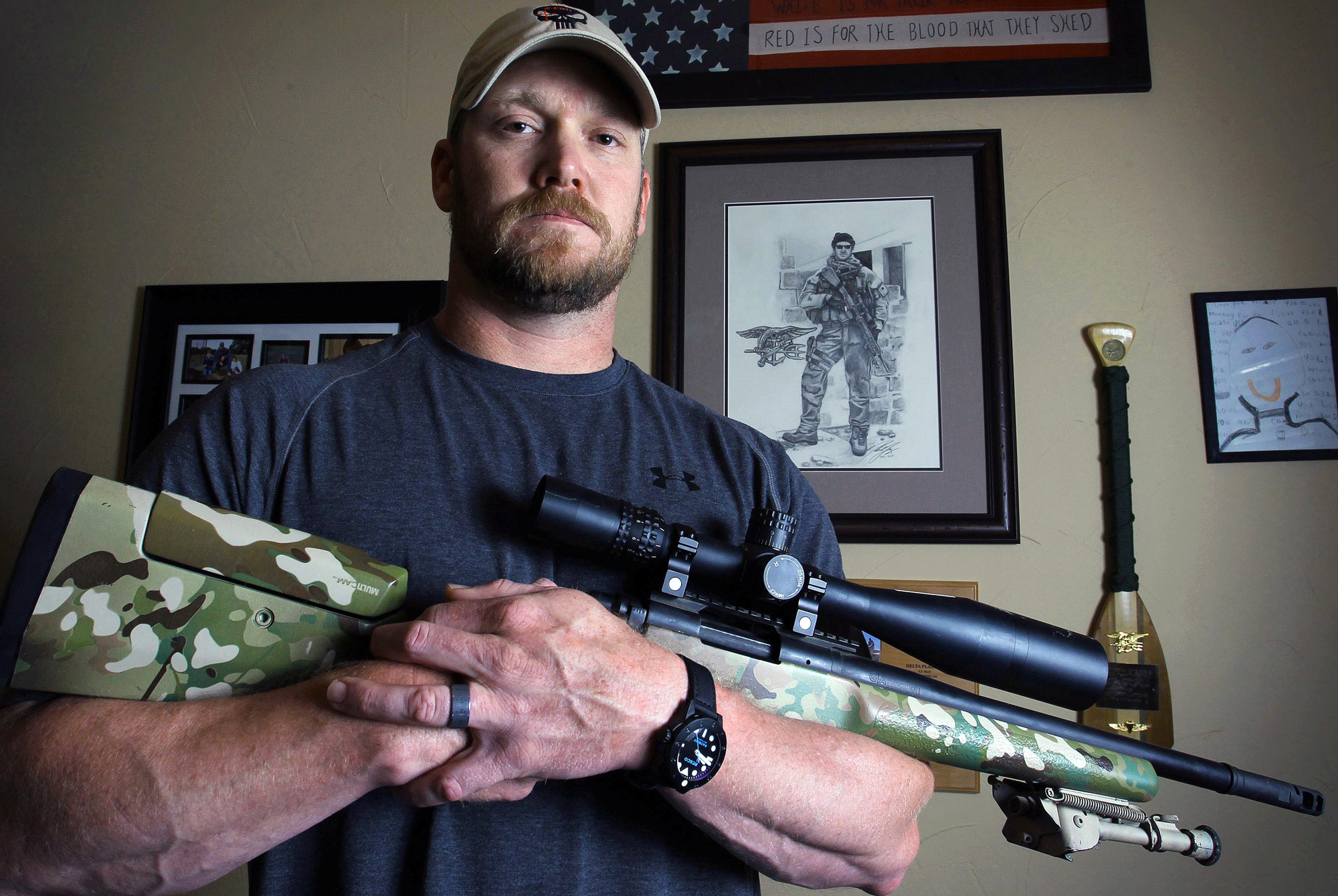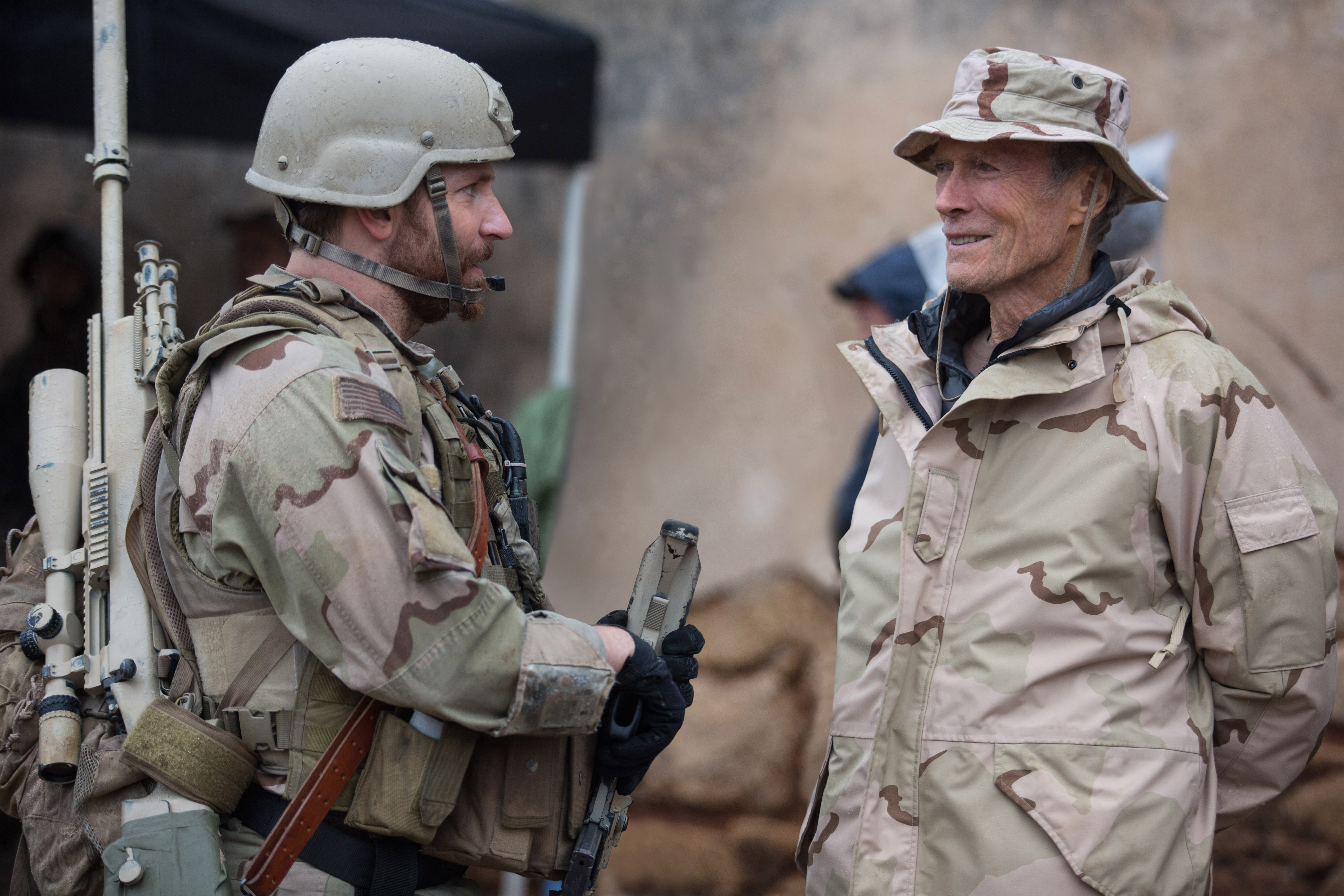American Sniper
 Friday, June 12, 2015 at 02:39PM
Friday, June 12, 2015 at 02:39PM 
I mulled over American Sniper for weeks, and finally got so jammed up I couldn't finish writing about it. Every argument in my head elicited a counterargument from myself. (Hey, that sounds like a form of mental illness!) As the weeks went by, whatever I might have had to say became irrelevant. Now that the movie's out on on home video, though, maybe it's time once again to puzzle it out: if I think this film is a good one--and I do (with some caveats, which I'll get to)--why then did I walk around for a long time after seeing it thinking, "I have got to get the taste of this thing out of my mouth?'
The movie, a character study about a real-life U.S. Navy SEAL sharpshooter called Chris Kyle, who once shot a target from 2,100 yards away, and who found his direction when he signed on to go fight in Iraq after 9/11, became a flashpoint in an America still fighting decades-long, bitter cultural wars. Over the weeks after seeing the movie, one of the thing I mused on was how culture divides us as much as it unites us: gun culture, music culture. Kyle is a working-class guy, so he enjoys country music and Metallica.
At first I was going to say the movie is a study of how someone like this is produced, but then I decided there's something condescending about that approach. Everything about the way the Iraq War went down disgusts me, but it is essential to admire and honor the sacrifice and courage of those who volunteered to go, most of whom, as it's been pointed out, came from lower econmic classes (and whose selflessness was, in my view, treated very carelessly, even cynically: soldiers tossed aside like so much damaged goods).
So I should say up front that I take exception to the idea, which both the movie's detractors and its supporters seemed to hold, that American Sniper as a narrative is "heroic and clear-cut." Respectful, yes. But Eastwood's telling one hell of a sad story, in my view: even a tragic one.

Discussion of the movie got caught up in the ongoing controversy--the rending of the social fabric--caused by the wars of the Bush administration, and sometimes rather got away from speaking in terms of the picture as the work of a team of professional filmmakers, such as writer Jason Hall and cinematographer Tom Stern, who's been Eastwood's DP since "Blood Work" in 2002, or as a very good performance from Bradley Cooper, who fully inhabits this character. I mean, he is this guy.
Heck, sometime you could forget we were talking about a work of art, or even just a piece of entertainment.
Lost in the fray, outside of "movie people" circles, was evaluation of the picture's formal choices, such as Eastwood's telling choice not to use music to punch up the battle scenes. Eastwood is an accomplished, economical visual storyteller in full, serene command of his art, and I believe we owe it to Eastwood to view him as an artist first (and, I believe, an important one). and a conservative Republican second.
Still, when you talk about movies it is permissible--sometimes even desirable--to talk about the wide world beyond the frame. And yet how "extra-textual" are you meant to get? You can see how I got jammed.

I remember being on edge as we settled into our seats and the film began. I braced myself for the prospect of a theater of people cheering the assassination of Muslim people. But it soon emerged that the tone of the picture was sober, not cathartic. As the call to prayer pierced the black screen, I thought of Karolyn's and my visit to Morocco a few years ago--my first visit to a Muslim country. I thought of a line from Dylan: "Don't fear if you hear a foreign sound to your ear."
Immediately we are in Kyle's shoes, on a rooftop in Iraq, faced with the choice of whether to shoot an Iraqi woman and child. This is riveting: we hold our breath. We can see that they are carrying a bomb towards approaching U.S. soldiers; Kyle thinks they are. And so we are forced to see what it's like to make a life-or-death situation in a split second. After he pulls the trigger, we are left wrung out, not cheering. Yet there's a sense in which the deck is stacked. There's no ambiguity: well, he had to do it, to stop a murder.

I will say I take exception to the idea, advanced by its critics, that the picture never shows the folly and futility of the Iraq War. For me the key scene of the movie was the funeral for Kyle's friend and fallen soldier, where the deceased's mother reads aloud a letter from her son that shatters the George W. Bush-fantasy version of the war, replacing it with hard truths. His letter, as read in his mom's shaking yet purposeful voice, expresses his suspicion that the war has become a crusade, a terrible waste of blood and treasure. Back in the car, when Kyle's wife Taya (nicely played by Sienna Miller) recalls that moment, he dismisses his late friend's comments. Kyle won't--can't--see the truths in it.
As to its depiction of American gun culture, American Sniper is respectful. However, any viewer who does not come away with the gnawing feeling that there is something profoundly wrong with that culture is, in my view, missing something. Think of the disturbing scene near the end where the supposedly healed Kyle trains a gun on Taya, and it's supposed to be a big joke.
The undeniable weakness of the film, one it almost can't recover from, is its cartoon Iraqi bad guys. Wouldn't it have been more interesting, for example, to show Mustafa (Sammy Sheik), the enemy sniper and Olympics marksman, to be Kyle's opposite number, an idea the film just toys with? A fellow obsessive? As it was, and with Kyle's talk of the enemy as "savages," I had to go look at our photo albums from Morocco just to get the taste out of my mouth of the demonization of Muslims.
On the other hand (see where all this even-handedness gets you?), it should be pointed out that American Sniper works within a certain tradition. I've been reading Lewis Jacobs's absorbing The Rise of the American Film: A Critical History (With an Essay-Experimental Cinema in America, 1921-1947), published in 1968. Jacobs writes of the pre-WWI era: "Hand in hand with frontier morality went military patriotism. As in earlier years, films about the Army and Navy and American history enjoyed an unslackening popularity...The courage and loyalty of the soldier and sailor were convincingly dramatized in film after film. [For Flag and Country was one title.] Since the display of the Flag at the end of a picture was certain to evoke applause, wily producers often made films with nothing more to commend them than a shot of Old Glory."
So I guess after all these months I'm still mixed on American Sniper. Divided, you could say. Maybe what was lost in the controversy over the picture was that, as a cultural product, it was not red or blue, but some more interesting shade of purple. Perhaps the achievement of Eastwood’s film is that it helped someone like me understand this man, Chris Kyle. In a divided America, that counts for something.
Rating: ***
Key to ratings:
***** (essential viewing)
**** (excellent)
*** (worth a look)
** (forgettable)
* (rubbish!!)


Reader Comments